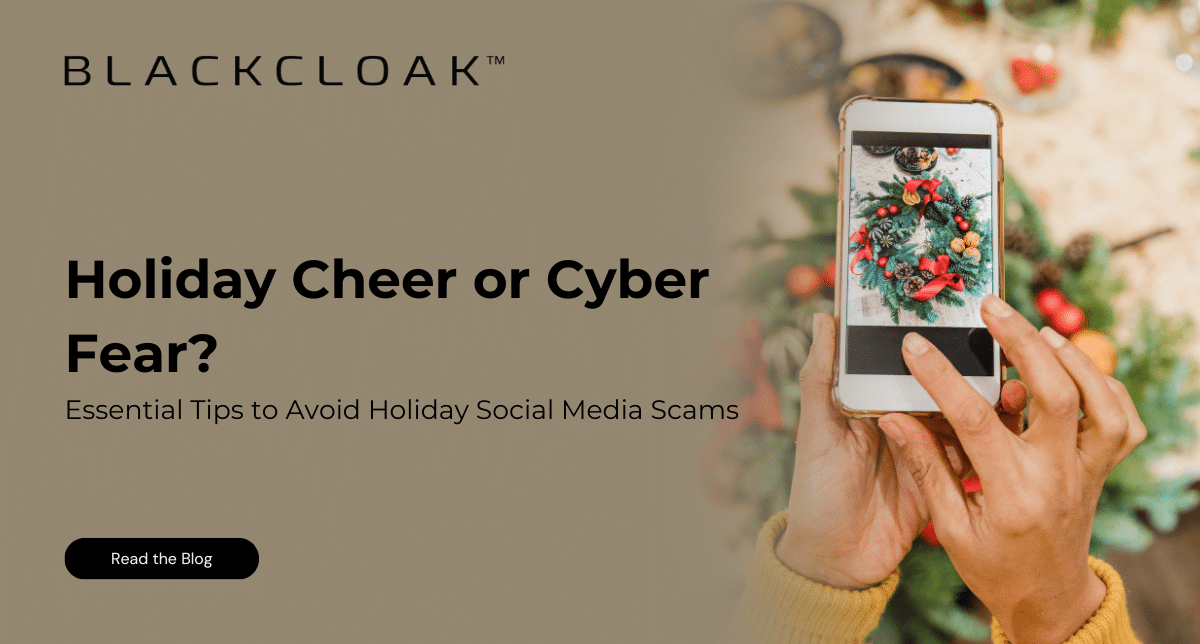Holiday Cheer or Cyber Fear? Essential Tips to Avoid Holiday Social Media Scams

The holiday season is a time of joy, celebration, and generosity. Unfortunately, it’s also a prime time for cybercriminals to exploit the festive spirit through various scams, especially on social media. As people share their holiday plans, shopping deals, and charitable donations online, they may unknowingly expose themselves to cyber threats. Here’s a look at common holiday social media scams and how to stay safe this season.
Common Holiday Social Media Scams
- Fake Charity Appeals
- Scammers create fake charity accounts or websites, sharing heart-wrenching stories and images to solicit donations from unsuspecting users. These fake charities often mimic legitimate ones, making it difficult to distinguish between the two.
- Phishing Links and Messages
- Cybercriminals send out phishing messages and links through social media platforms, pretending to be from trusted brands or friends. These links often lead to malicious websites designed to steal personal information or install malware on your device.
- Holiday Giveaway Scams
- Fraudsters set up fake holiday giveaway contests or promotions, asking users to share personal information or pay a small fee to enter. These scams aim to collect personal data for identity theft or to charge victims’ credit cards without delivering any prize.
- Discount and Deal Scams
- Scammers advertise unbeatable holiday deals on fake social media pages or compromised accounts, luring users to fraudulent websites. Once users attempt to purchase items, they either receive counterfeit products or nothing at all, while their payment information is stolen.
- Gift Exchange Scams
- Popular on platforms like Facebook, these scams invite users to participate in holiday gift exchanges, promising that they will receive multiple gifts in return for sending one. Often a pyramid scheme, these scams result in users losing money or personal information without receiving any gifts.
Tips to Stay Safe on Social Media
- Verify Before You Donate
- Before making any donations, research the charity. Check their official website and look for reviews on trusted platforms like Charity Navigator or the BBB. Be wary of unsolicited donation requests on social media.
- Think Before You Click
- Avoid clicking on links from unknown or suspicious sources. If a friend sends you a link that seems out of character, verify with them directly before clicking. Always hover over links to see the actual URL before clicking.
- Be Skeptical of Too-Good-To-Be-True Offers
- Unbelievable holiday deals or giveaways should raise a red flag. If an offer seems too good to be true, it probably is. Stick to shopping with reputable retailers and use official apps for purchases.
- Secure Your Accounts
- Enable multi-factor authentication (MFA) on your social media accounts to add an extra layer of security. Use strong, unique passwords for each account and change them regularly.
- Limit Personal Information Sharing
- Avoid sharing sensitive personal information on social media, such as your address, phone number, or financial details. Be mindful of the information you post and adjust your privacy settings to restrict access to your profile.
- Report Suspicious Activity
- If you come across a suspicious account, post, or message, report it to the social media platform. This helps protect others from falling victim to the same scam.
- Educate Yourself and Others
- Stay informed about common scams and educate your family and friends. Awareness is the first step in preventing cybercriminals from taking advantage of your festive spirit.
While social media is a great way to connect and share holiday cheer, it’s essential to remain vigilant against potential scams. By following these tips and staying informed, you can protect yourself and enjoy a safe and secure holiday season. Remember, when it comes to online safety, a little caution goes a long way.
Stay safe, and happy holidays!









